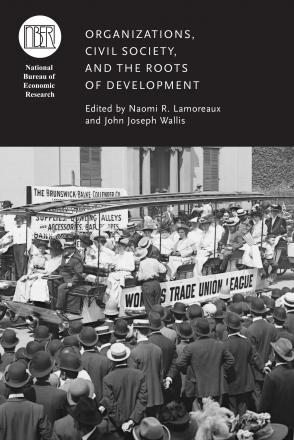Organizations, Civil Society, and the Roots of Development

Modern developed nations are rich and politically stable in part because their citizens are free to form various types of civic organizations and have access to the legal and other resources that are needed to do so. More than half of the world’s population, however, lives in nations that do not allow such freedom. Why have some countries disallowed the formation of organizations as part of their economic and political systems?
The essays in Organizations, Civil Society, and the Roots of Development seek to answer this question through an exploration of how, during the eighteenth and nineteenth centuries, countries including the United States, the United Kingdom, France, and Germany, made the transition to allowing their citizens the right to form organizations.


